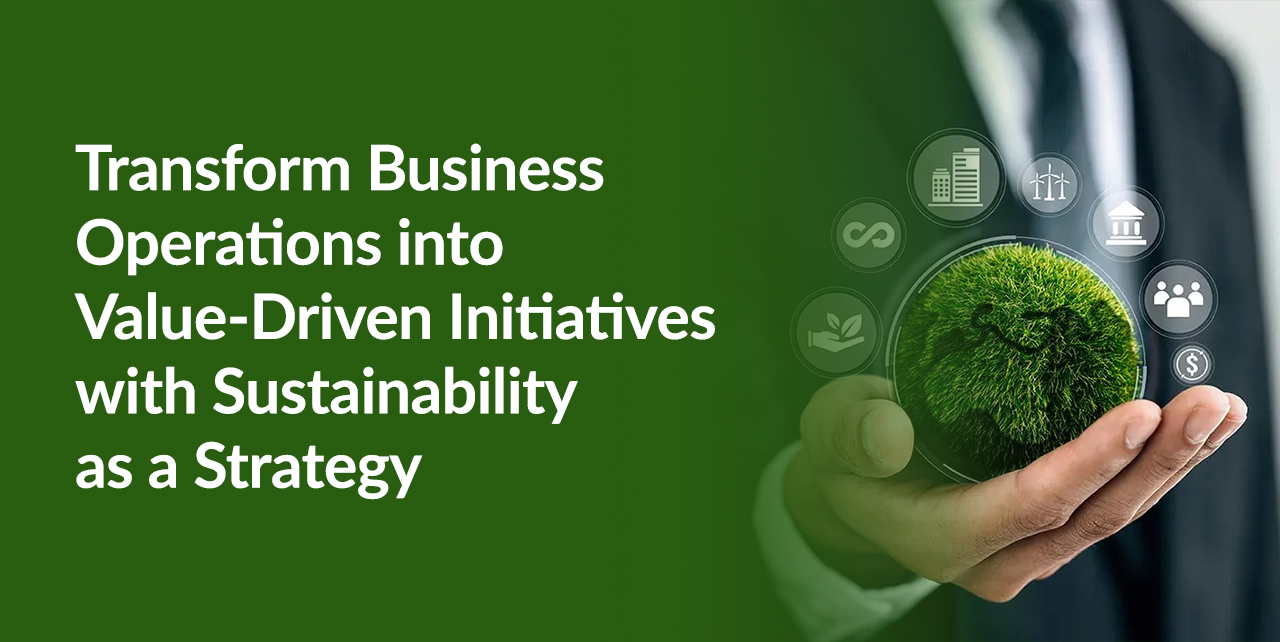Integrating sustainability into business operations is no longer a choice but a necessity. Companies worldwide are realizing the benefits of embedding sustainability into their core strategies, not only to meet regulatory requirements and consumer demands but also to drive innovation, efficiency, and long-term value creation. Here’s how you can transform your business operations into value-driven initiatives with sustainability at the forefront.
1. Define Your Sustainability Goals
The first step towards sustainable business operations is defining clear, measurable sustainability goals. These goals should align with your company’s mission and values and be integrated into your overall business strategy. Consider using frameworks like the United Nations Sustainable Development Goals (SDGs) to guide your objectives. Goals might include reducing carbon emissions, minimizing waste, improving energy efficiency, or sourcing materials responsibly.
2. Conduct a Sustainability Audit
Before implementing new sustainability initiatives, it’s crucial to understand your current environmental impact. Conduct a thorough sustainability audit to identify areas where your business can improve. This audit should cover all aspects of your operations, from supply chain management and production processes to energy use and waste management. Use the findings to prioritize actions that will have the most significant impact.
3. Engage Stakeholders
Sustainability is a collective effort that requires the engagement of all stakeholders, including employees, customers, suppliers, and investors. Communicate your sustainability goals and initiatives clearly and regularly. Encourage employees to participate in sustainability programs and provide training to help them understand the importance of their role. Foster a culture of sustainability by recognizing and rewarding efforts and achievements.
4. Innovate and Invest in Green Technologies
Innovation is at the heart of sustainable business transformation. Invest in green technologies and practices that reduce your environmental footprint while enhancing operational efficiency. This might include renewable energy sources, energy-efficient machinery, sustainable materials, and advanced recycling systems. Embrace digital solutions like IoT and AI to optimize resource use and track progress in real-time.
5. Optimize Supply Chain Management
A sustainable supply chain is critical to overall business sustainability. Work closely with suppliers to ensure they adhere to ethical and environmental standards. Consider sourcing materials locally to reduce transportation emissions and support local economies. Implement a robust supply chain management system to monitor and improve sustainability performance across the entire supply chain.
6. Foster a Circular Economy
Transitioning to a circular economy model can significantly reduce waste and resource consumption. Design products for longevity, repairability, and recyclability. Implement take-back schemes and recycling programs to keep products and materials in use for as long as possible. By closing the loop, you can minimize environmental impact and create new business opportunities.
7. Measure and Report Progress
Transparent reporting is essential for demonstrating your commitment to sustainability and building trust with stakeholders. Establish key performance indicators (KPIs) to measure your progress toward sustainability goals. Regularly report on your achievements and challenges using recognized standards such as the Global Reporting Initiative (GRI) or the Carbon Disclosure Project (CDP). Use data and insights to continually refine your strategies and drive improvement.
8. Collaborate for Greater Impact
Collaboration with other businesses, industry groups, and non-governmental organizations can amplify your sustainability efforts. Share best practices, participate in joint initiatives, and advocate for policies that support sustainable development. By working together, you can drive systemic change and create a more sustainable future for all.
Transforming business operations into value-driven initiatives with sustainability as a strategy requires a holistic and proactive approach. By setting clear goals, engaging stakeholders, investing in innovation, optimizing supply chains, fostering a circular economy, measuring progress, and collaborating with others, businesses can not only enhance their environmental and social impact but also drive long-term success and resilience.
Embrace sustainability as a core business strategy and be part of the movement towards a more sustainable and prosperous future.


